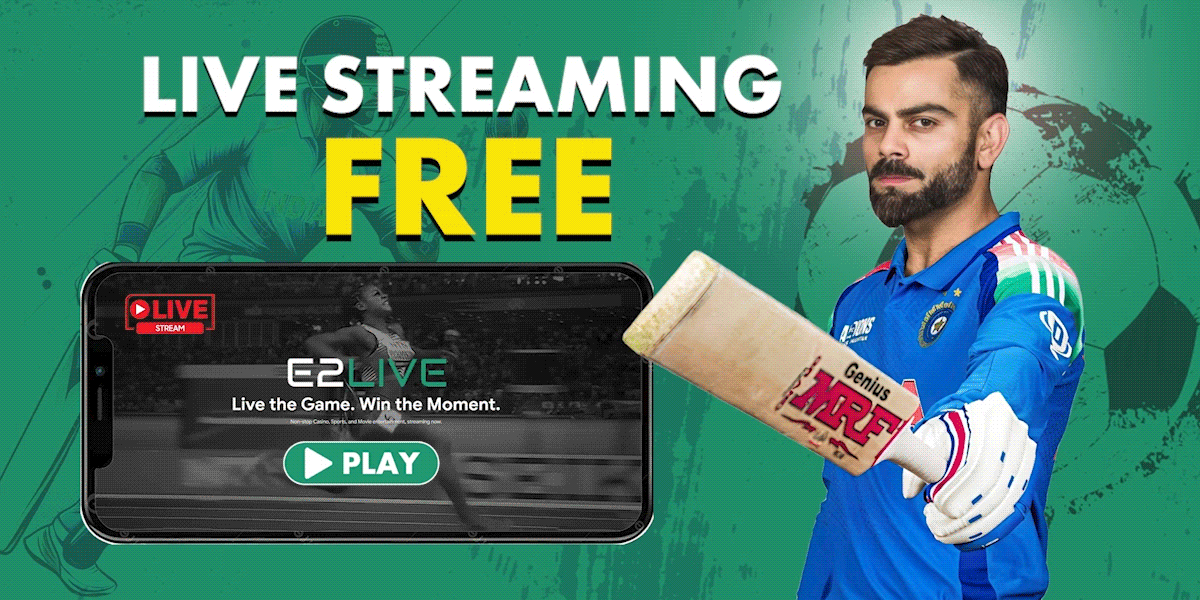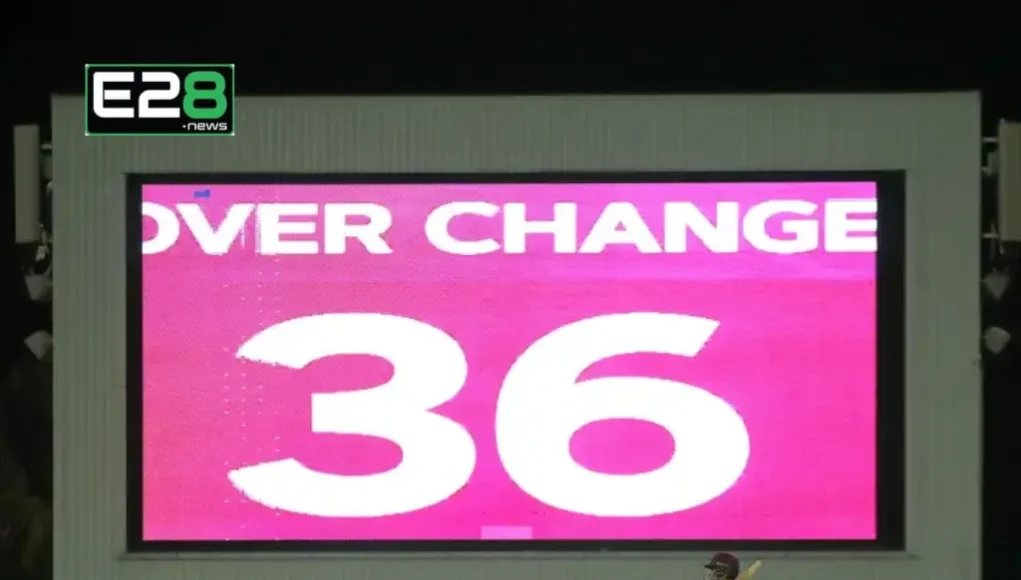Stop Clock Introduced in Test Cricket
The ICC has expanded its stop clock rule to Test cricket to address slow over rates, a long-standing issue in the format. According to the revised rule, the fielding side must begin a new over within 60 seconds of the previous one ending. Failure to do so will result in two warnings, followed by a five-run penalty if the offense is repeated. The warnings reset after every 80-over block.
“𝑻𝒉𝒊𝒔 𝒊𝒔 𝒂𝒏 𝒖𝒏𝒖𝒔𝒖𝒂𝒍 𝒘𝒊𝒄𝒌𝒆𝒕 𝒂𝒕 𝑺𝑺𝑪 𝒃𝒆𝒄𝒂𝒖𝒔𝒆 𝑰’𝒗𝒆 𝒃𝒆𝒆𝒏 𝒑𝒍𝒂𝒚𝒊𝒏𝒈 𝒉𝒆𝒓𝒆 𝒇𝒐𝒓 𝒂𝒍𝒎𝒐𝒔𝒕 15 𝒚𝒆𝒂𝒓𝒔. 𝑻𝒉𝒊𝒔 𝒊𝒔 𝒂 𝒕𝒐𝒕𝒂𝒍𝒍𝒚 𝒅𝒊𝒇𝒇𝒆𝒓𝒆𝒏𝒕 𝒘𝒊𝒄𝒌𝒆𝒕,” 𝒔𝒂𝒊𝒅 𝑲𝒂𝒏𝒅𝒂𝒎𝒃𝒚.
Saliva Ban Maintains, but Ball Change Now Discretionary
Though the ban on using saliva to shine the ball remains in place, umpires are no longer required to change the ball immediately if saliva is used. Instead, they may assess whether the ball’s condition has been significantly altered. If not, play can continue without change. However, if deliberate tampering is detected, the batting side will be awarded five runs.
DRS Protocol Adjusted for Sequential Decisions
Under the new DRS rules, when a batter reviews an out decision like caught behind and UltraEdge shows no bat contact, the TV umpire will then proceed to assess lbw using the original “out” decision context. If ball-tracking results in “umpire’s call,” the batter will remain out, as the decision was initially given.
“𝑻𝒉𝒆 𝒐𝒓𝒊𝒈𝒊𝒏𝒂𝒍 𝒅𝒆𝒄𝒊𝒔𝒊𝒐𝒏 𝒍𝒂𝒃𝒆𝒍 𝒐𝒏 𝒊𝒕 𝒘𝒊𝒍𝒍 𝒓𝒆𝒂𝒅 ‘𝒐𝒖𝒕’,” 𝒓𝒆𝒂𝒅𝒔 𝒕𝒉𝒆 𝒖𝒑𝒅𝒂𝒕𝒆𝒅 𝑫𝑹𝑺 𝒑𝒓𝒐𝒕𝒐𝒄𝒐𝒍.
Combined Reviews to Follow Chronological Order
The ICC has now clarified that in cases involving both umpire and player reviews, decisions will be assessed in the order they occurred. For example, if both lbw and run out are under review, the third umpire will first adjudicate the earlier incident. If a dismissal is confirmed, the ball is deemed dead, and subsequent incidents will not be evaluated.
Fairness of Catch to Be Reviewed Even After No-Ball
In cases where a catch is disputed but the TV umpire simultaneously identifies a no-ball, the new rule mandates that the catch’s validity be reviewed regardless. If it’s a fair catch, the batting side only gets the no-ball run. If not, additional runs taken will be credited.
Deliberate Short Run Rule Strengthened
Deliberate short runs now carry more consequences. In addition to the five-run penalty, the fielding side can choose which batter stays on strike. This addresses scenarios where batters may attempt to manipulate strike rotation or deceive umpires.
“𝑩𝒂𝒕𝒕𝒆𝒓𝒔 𝒎𝒂𝒚 𝒄𝒉𝒐𝒐𝒔𝒆 𝒕𝒐 𝒂𝒃𝒐𝒓𝒕 𝒂 𝒓𝒖𝒏, 𝒑𝒓𝒐𝒗𝒊𝒅𝒆𝒅 𝒕𝒉𝒆 𝒖𝒎𝒑𝒊𝒓𝒆 𝒃𝒆𝒍𝒊𝒆𝒗𝒆𝒔 𝒕𝒉𝒂𝒕 𝒕𝒉𝒆𝒓𝒆 𝒘𝒂𝒔 𝒏𝒐 𝒊𝒏𝒕𝒆𝒏𝒕𝒊𝒐𝒏… 𝒕𝒐 𝒅𝒆𝒄𝒆𝒊𝒗𝒆,” 𝒄𝒍𝒂𝒓𝒊𝒇𝒊𝒆𝒔 𝑹𝒖𝒍𝒆 18.5.1.
Full-Time Playing Substitutes on Trial in Domestic Cricket
To mitigate the loss of players with serious external injuries (not minor strains), the ICC has introduced a trial allowing full-time replacements in domestic first-class matches. These substitutes must be like-for-like and approved by match officials upon visible confirmation of injury. This will be optional for member boards to implement.
“𝑻𝒉𝒊𝒔 𝒓𝒖𝒍𝒆 𝒘𝒊𝒍𝒍 𝒃𝒆 𝒐𝒏 𝒂 𝒕𝒓𝒊𝒂𝒍 𝒃𝒂𝒔𝒊𝒔 𝒂𝒏𝒅 𝒊𝒔 𝒆𝒏𝒕𝒊𝒓𝒆𝒍𝒚 𝒖𝒑 𝒕𝒐 𝒕𝒉𝒆 𝒎𝒆𝒎𝒃𝒆𝒓 𝒄𝒐𝒖𝒏𝒕𝒓𝒊𝒆𝒔,” 𝒕𝒉𝒆 𝑰𝑪𝑪 𝒔𝒕𝒂𝒕𝒆𝒅.
Also Read: Sri Lanka Off to a Flying Start After Dismissing Bangladesh for 247
















